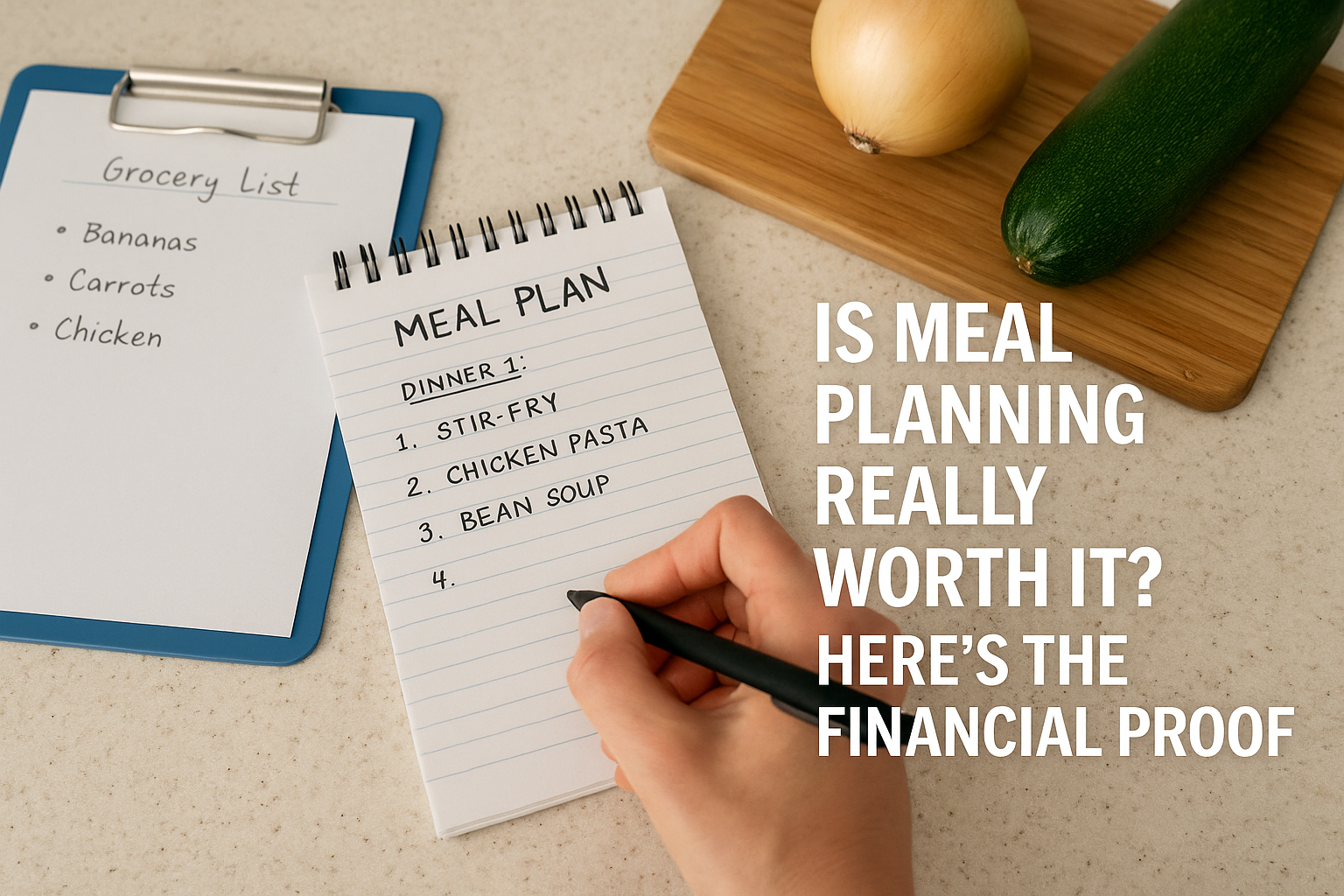Why Meal Planning Deserves a Place in Your Weekly Routine
Meal planning is often seen as a chore or something only for ultra-organized people. But in reality, it’s a smart financial and lifestyle habit that can help any household — no matter your budget, culture, or cooking skills.
Whether you’re a busy parent, a working couple, or simply trying to stretch your grocery money, planning your meals can save you time, reduce waste, and help you feel more in control of your finances and health.
Let’s break down how meal planning can save you real money — and how to start simply without stress.
How Meal Planning Saves You Money (The Real Proof)
1. You Buy Only What You Need
Without a plan, it’s easy to overbuy or grab whatever looks good at the store. Meal planning helps you shop with purpose.
Instead of shopping for meals on the spot, you create a list based on what you’ll actually cook. This leads to fewer impulse purchases and a leaner grocery bill.
Savings Potential: Up to 20–30% off your usual grocery spending just by sticking to a list.
2. You Reduce Food Waste
When you plan your meals, you make better use of what you already have — especially perishables like vegetables, dairy, and bread. That means fewer forgotten ingredients rotting in the fridge.
By cooking meals that overlap ingredients (like rice, potatoes, chicken, or beans), you waste less and stretch more.
Savings Potential: Households waste an average of 15–20% of the food they buy — meal planning can help you keep that money in your pocket.
3. Fewer Takeout and Delivery Costs
When you know what’s for dinner, you’re far less likely to order food out of convenience or frustration. One last-minute food order can cost as much as ingredients for two or three home-cooked meals.
Meal planning helps you avoid those “nothing to eat” moments and cuts down on spontaneous spending.
Savings Potential: Even reducing takeout by two meals a week can save over $100 a month.
4. You Make Fewer Store Trips
Each trip to the supermarket comes with temptation. When you plan, you can shop once a week or even less — instead of grabbing things multiple times and spending more.
Fewer trips = fewer chances to overspend.
Savings Potential: Eliminating 1–2 extra visits per week can save both money and time.
5. You Use What’s on Sale
Planning ahead lets you build meals around what’s discounted or in season. Whether it’s meat, veggies, or pantry staples, you can create your meal plan around what gives you the most value.
Check local flyers or apps before planning to stretch your money even further.
Meal Planning Isn’t About Complicated Recipes
You don’t need to be a chef or prep 21 meals in advance. In fact, the simpler your plan, the easier it is to stick with.
Start with just 3–4 dinners for the week. Choose meals you already know how to make or ones that use ingredients you already have.
Examples of easy meal categories:
- Stir-fries
- Soups or stews
- Pasta with vegetables or sauce
- Rice bowls
- One-pan oven meals
- Sandwiches or wraps
Plan meals that can stretch into lunch the next day or be reimagined with leftovers.
How to Start Meal Planning in 3 Simple Steps
Step 1: Check What You Already Have
Look through your fridge, freezer, and pantry. Base meals around ingredients that need to be used soon.
Step 2: Choose 3–5 Meals
Pick meals that are quick to prepare and that your family enjoys. Balance is key — include a mix of comfort, variety, and health.
Step 3: Make a Shopping List
Write down only what you need to complete those meals. Try to stick to that list as closely as possible.
Tools That Make Meal Planning Easier
- A notebook or whiteboard on your fridge
- Grocery list apps (like AnyList, Notion, or Mealime)
- Pinterest or food blogs for inspiration
- A simple calendar to assign meals to days
Make it a Sunday routine or a quiet weekday evening habit. Involving your partner or kids makes it more collaborative — and fun.
Beyond Finances: The Extra Benefits of Meal Planning
- Less daily stress: You already know what’s for dinner
- Healthier eating: You choose balanced meals intentionally
- More family time: Less time wondering, more time connecting
- Teaches kids planning skills: Especially when they help with ideas or cooking
Final Thought: Small Planning, Big Payoff
Meal planning doesn’t have to be rigid or stressful. It’s not about being perfect — it’s about being more prepared. Even a little planning goes a long way in saving time, money, and energy.
Try it for one week. You’ll likely notice a calmer kitchen, a lighter grocery bill, and fewer “what do we eat now?” evenings.
